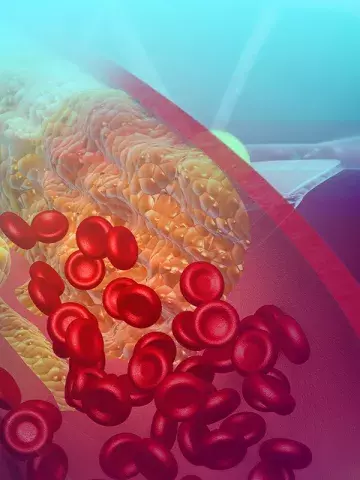Bempedoic acid: similar CV risk reduction to statins, finds study
By Rebecca Jenkins
Treatment with bempedoic acid achieves a similar level of cardiovascular risk reduction to that seen with statins when standardised per unit change in LDL-cholesterol (LDL-C), a study finds.
An adenosine trisphosphate citrate lyase (ACL) inhibitor, bempedoic acid is activated by an enzyme present in hepatocytes but not detectable in skeletal muscle, which possibly accounts for its low rate of associated myalgia and other muscle related adverse effects compared with statins, researchers explained in the Journal of the American College of Cardiology.
The CLEAR (Cholesterol Lowering via Bempedoic Acid, an ACL-Inhibiting Regimen) Outcomes trial previously found treating statinintolerant patients with bempedoic acid produced a 21% decrease in LDL-C relative to placebo and a 13% relative risk reduction in the risk of major cardiovascular events.
For this latest study, researchers undertook a prespecified secondary analysis of the CLEAR Outcomes trial to determine whether bempedoic acid produced the same cardiovascular risk reduction as statins when standardised for LDL-C lowering using the methodology of the Cholesterol Treatment Triallists Collaboration (CTTC).
The industry-sponsored CLEAR Outcomes trial randomised 13,970 statinin-tolerant patients at high risk of cardiovascular disease to bempedoic acid (n=6992) or placebo (n=6978) with a median patient follow up of 40.6 months.
A first vascular event occurred in 703 (10.1%) patients in the bempedoic acid group and 816 (11.7%) patients in the placebo group, the researchers reported.
When normalised per 1 mmol/L reduction in LDL-C, the hazard ratio was 0.75, which was comparable to the rate ratio of 0.78 reported for statins in the CTTC meta-analysis, they concluded.
‘Normalized risk reductions were similar for bempedoic acid and statins for the endpoints of major coronary events, nonfatal myocardial infarction, and coronary revascularization,’ they wrote.
Associate Professor David Sullivan, Associate Professor at The University of Sydney’s Central Clinical School, said the study confirmed the benefits of cholesterol-lowering treatments were mainly attributable to their effect on atherogenic particles, most particularly LDL-C.
‘This study is important as the protective effect of bempedoic acid has now been demonstrated to be equivalent to that of statins relative to LDL-C reduction,’ he said.
Due to the way it was activated in the body, bempedoic acid might avoid the muscle symptoms that had been a major contributor towards negative public perceptions about statin therapy, Professor Sullivan noted, although he suggested these perceptions might be misplaced.
‘Bempedoic acid is likely to be particularly useful as a cost effective daily oral alternative to statins for patients with statin associated musculoskeletal symptoms and it is likely to be more effective when used in combination with ezetimibe,’ he said.
Early data also suggested that, unlike statins, bempedoic acid therapy was not associated with any increase in new onset type 2 diabetes, Professor Sullivan noted.
Bempedoic acid is not currently available in Australia but has regulatory approval for cardiovascular prevention in the USA and Europe.


